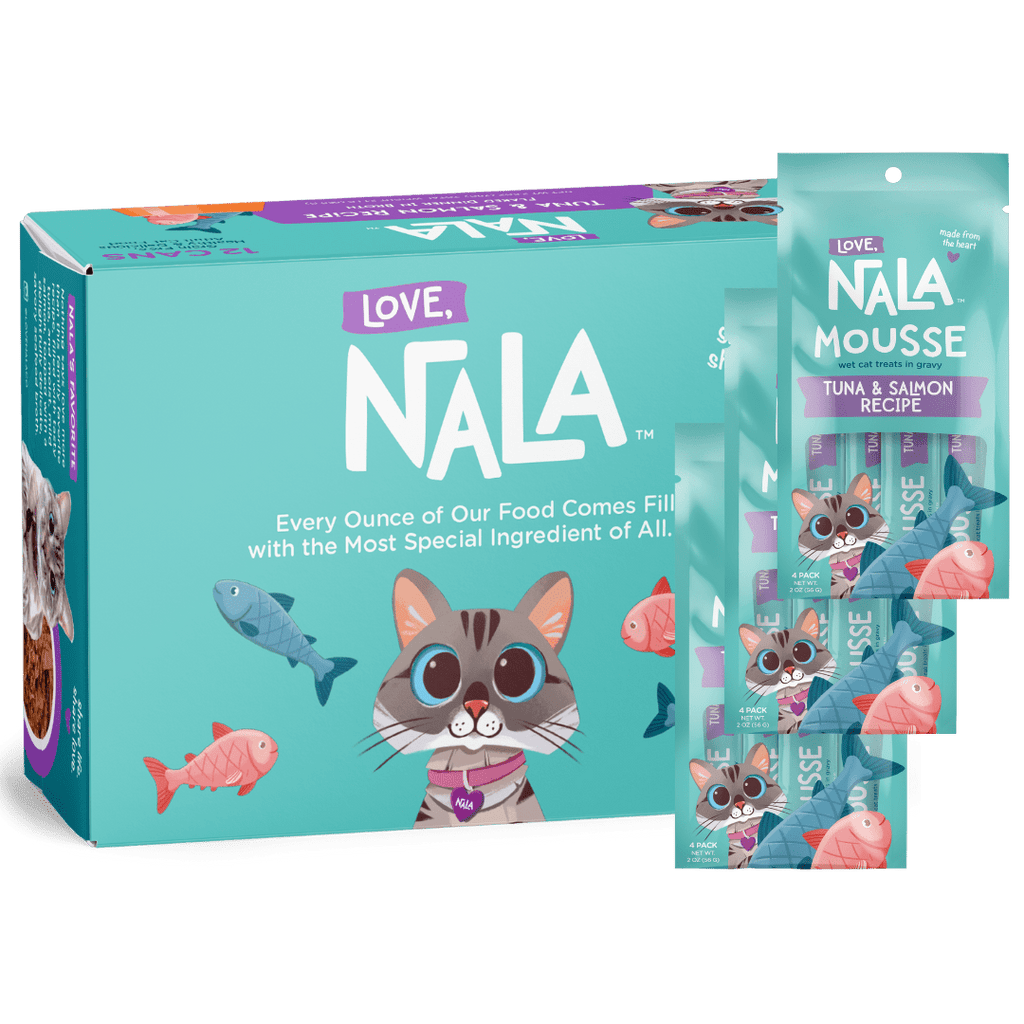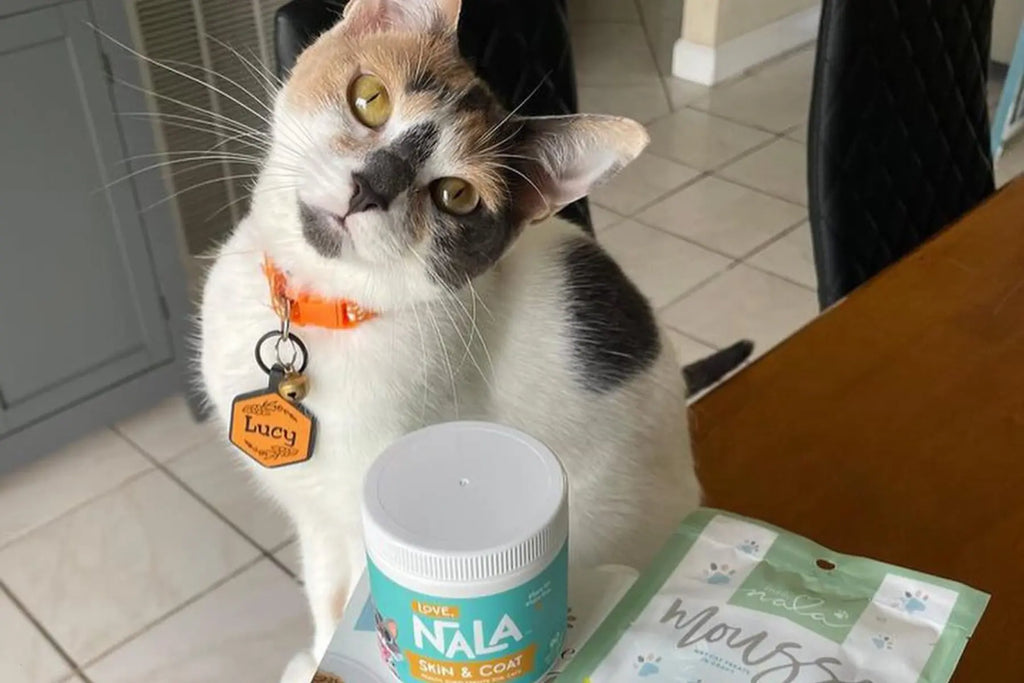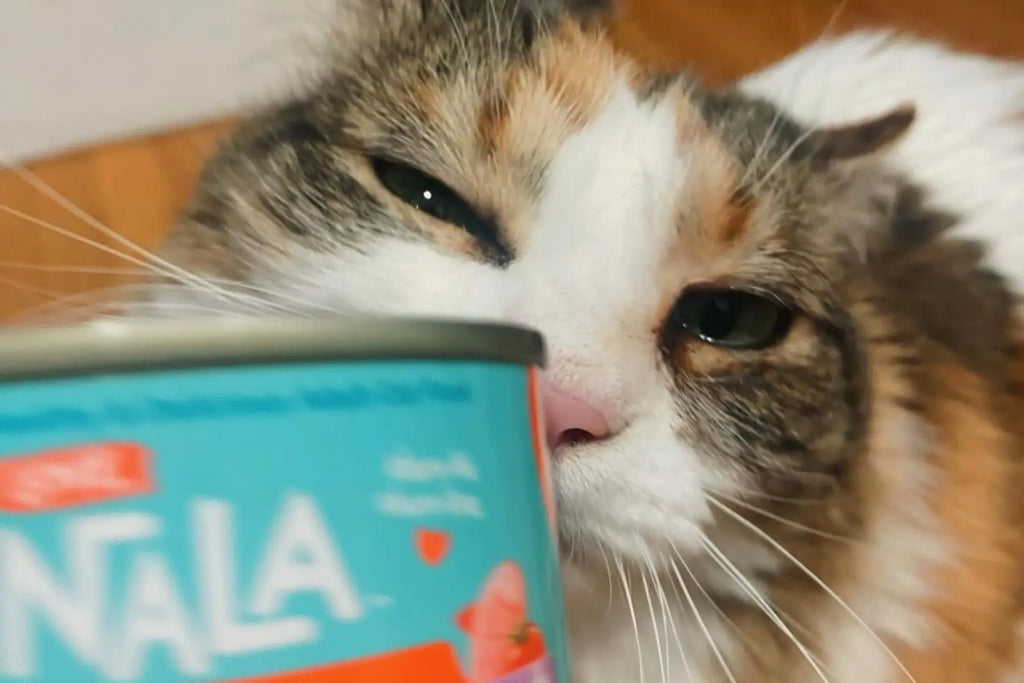Sweet potatoes are gaining popularity as a functional ingredient in cat food for several reasons. Their natural sweetness is appealing to cats, and when prepared correctly, sweet potatoes can offer a nutritional boost to their regular diet. This addition is not just about indulging our pets with more variety but also about enhancing their diet with sweet potato's dietary fiber, vitamins, and minerals.
When it comes to feline nutrition, every ingredient counts. Sweet potatoes are not a traditional staple in the carnivorous diet of cats, but they do offer specific health benefits when included in moderation. They are a source of complex carbohydrates and dietary fiber, which can aid in digestion, and they're packed with essential vitamins and antioxidants that can support overall health. However, it's important to balance the inclusion of sweet potatoes with the protein-rich foods that should make up the majority of a cat's diet.
Nutritional Benefits of Sweet Potato in Cat Food
One of the standout nutritional features of sweet potatoes is their high dietary fiber content, which plays a vital role in the digestive health of cats. Fiber aids in the movement of food through the digestive tract, leading to more regular bowel movements and helping to prevent constipation and diarrhea. This benefit is particularly important for indoor cats, who may be less active and therefore more prone to digestive issues. Including sweet potatoes in your cat's diet can contribute to smoother digestive processes and support the overall gastrointestinal system.
Sweet potatoes are a powerhouse of essential vitamins, including A, C, and B6, all of which contribute to a robust immune system. Vitamin A is crucial for maintaining healthy vision, skin, and coat, while Vitamin C is known for its role in immune function and as an antioxidant. Vitamin B6, on the other hand, is vital for protein metabolism and the creation of neurotransmitters. Together, these vitamins help keep your cat's immune response strong and can aid in warding off illnesses, making vitamin-rich sweet potato cat food a beneficial component of their diet.
The vibrant orange color of sweet potatoes is indicative of their rich beta-carotene content, which is a precursor to Vitamin A and an antioxidant. Antioxidants help neutralize free radicals, which are compounds that can cause cellular damage and lead to chronic diseases. By incorporating antioxidant-rich sweet potato cat food into your pet's diet, you are providing them with these protective compounds, potentially reducing the risk of disease and contributing to their overall health and longevity.
Maintaining a healthy weight is crucial for the longevity and well-being of cats. Sweet potatoes offer a low-fat option that can be beneficial in managing your cat's weight. Unlike many commercial cat foods that are high in fats and calories, sweet potatoes provide a satisfying portion without the excessive calories, making them an excellent choice for cats that are overweight or prone to obesity. However, it is important to ensure that the primary source of nutrition comes from high-quality protein, with sweet potatoes serving as a supplementary ingredient for their nutritional benefits.
Incorporating Sweet Potato in Feline Diets
Introducing new ingredients into your cat's diet should be done with care to prevent any digestive upset. A gradual introduction to sweet potato cat food is recommended to allow your cat's digestive system to adjust. Start by adding a small amount of sweet potato to their regular food, and slowly increase the quantity over several weeks. This slow process helps to mitigate the risk of stomach discomfort and ensures that your cat can enjoy the new addition to their meals without any adverse effects.
While sweet potatoes can be a nutritious supplement, it is critical to maintain a diet that is high in animal proteins, which are essential for a cat's health. Balancing sweet potato with high-protein foods ensures that your cat is not only getting the fiber and vitamins from the vegetables but also the vital nutrients that come from a protein-rich diet. Protein is the cornerstone of a cat's diet, so sweet potatoes should never replace protein sources but rather serve as a beneficial addition.
Determining the ideal portions of sweet potato cat food depends on several factors, including your cat's size, age, activity level, and overall health. Generally, sweet potatoes should make up a small percentage of the total diet. Consultation with a veterinarian can provide guidance on the appropriate serving size for your cat to ensure they receive the nutritional benefits without overconsumption, which could lead to nutrient imbalances.
Cats, like people, have individual dietary needs and taste preferences. Some may have specific health issues that require a tailored diet, and others may simply prefer certain flavors or textures over others. When incorporating sweet potatoes into your cat's diet, consider these personal aspects. For cats with particular health conditions, sweet potatoes can be a beneficial ingredient due to their fiber content and low fat. However, always consult with your veterinarian when introducing sweet potato cat food safely, especially for cats with special dietary requirements.
The Role of Sweet Potato in Digestive Health and Hairball Control
Sweet potatoes can contribute significantly to a cat's digestive health due to their sweet potato cat food dietary fiber content. This fiber aids in the smooth transit of food through the intestines, which helps in the prevention of constipation and can ease the passage of hair through the digestive system, reducing the likelihood of hairball formation. It is important to note, however, that any change in a cat's diet should be monitored to observe how it affects their individual digestive process, as each cat may respond differently to increased fiber intake.
Hairballs are a common issue for many cats, particularly those with long fur. The inclusion of sweet potato in a cat's diet can act as a natural remedy to this problem. The fiber in sweet potato cat food and hairball management go hand in hand; it helps to bind the hair and assists in its movement through the digestive system, thus minimizing the formation of hairballs. This is a gentler and more natural solution compared to many commercial hairball remedies, which can contain mineral oils or other synthetic ingredients.
When comparing sweet potato cat food to traditional hairball remedies, it's important to consider the health benefits that come with a natural diet. Traditional remedies often contain lubricants that help hairballs pass through the digestive system, but they don't provide the additional nutrients found in sweet potatoes. Sweet potatoes offer a way to manage hairballs while also contributing to the overall nutrition of the cat, making them a preferable option for many pet owners.
As you incorporate sweet potatoes into your cat's diet for hairball control, it's crucial to monitor your cat's digestive response. Observe your cat's bowel movements and watch for signs of discomfort, which could indicate that the amount of sweet potato needs to be adjusted. Regular monitoring will help you fine-tune your cat's diet for their comfort and health, ensuring that they reap the maximum benefits from this nutritious vegetable.
Tips for a Successful Diet Transition to Sweet Potato Cat Food
When considering adding sweet potato to your cat’s diet, the quality of the product is paramount. It is important to identify high-quality sweet potato cat food brands that use pure, wholesome ingredients without unnecessary additives. Look for brands with a reputation for natural ingredients and a commitment to feline nutrition. Reading labels is crucial; the best options will list sweet potato as one of the first few ingredients, indicating a higher proportion in the food.
Switching to a new cat food, especially one containing an ingredient like sweet potato, should be approached with a planned strategy. Understanding the sweet potato cat food transition tips can make the process smoother. It’s generally recommended to start with a mix of 75% old food to 25% new food and to gradually change the proportions over the course of several days or weeks. This will help your cat’s digestive system adapt without causing upset or refusal to eat.
During the transition to a sweet potato-infused diet, close observation of your cat’s health and behavior is crucial. Any changes, whether positive or negative, can be indicators of how well your cat is adapting to the new food. Observing your cat's health and behavior changes will guide you on whether the transition is going smoothly or if there might be an ingredient that doesn't agree with your pet. Sudden changes in energy levels, coat quality, stool consistency, or eating habits warrant a closer look and possibly a consultation with a veterinarian.
Every cat is unique, and what works for one may not work for another. This is why consulting with a veterinarian for tailored advice is a critical step in the transition to a diet that includes sweet potatoes. A professional can provide valuable insights based on your cat’s health history, age, and specific needs. They can also offer advice on portion sizes and frequency of meals to ensure your cat is getting the right balance of nutrients from their new diet.
The journey of incorporating sweet potato cat food into your pet’s diet is one rooted in the desire for better health and well-being. As you have learned, sweet potatoes can provide numerous benefits, from aiding digestion to supporting immune health. While they should not replace the high-protein foods that are crucial for your cat, when used correctly, sweet potatoes can be a valuable part of a balanced and nutritious diet. The positive changes in your cat’s health can serve as a rewarding reminder of the care and attention you’ve invested in their dietary needs.
The inclusion of sweet potatoes in cat food reflects a broader trend towards a more holistic approach to feline nutrition—one that considers a variety of nutrients to support health and longevity. As we move forward, we may see more pet food manufacturers exploring natural, plant-based ingredients that offer specific health benefits. The future of feline nutrition seems poised to balance traditional feeding practices with innovative additions like sweet potatoes, providing our cats with diets that are not only satisfying but also conducive to a long and healthy life.




















